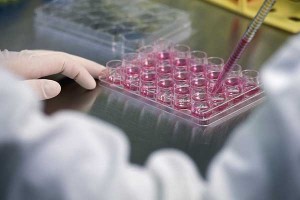 PROFS has officially registered against Assembly Bill 214 and Senate Bill 172. The bills, introduced by Representative Andre Jacque (R-Bellevue) and Senator Glenn Grothman (R- West Bend) , would make it illegal to provide or use for experimentation fetal body parts. The lower-house proposal is cosponsored by 51 additional Republicans, a majority of the Assembly’s 99 members.
PROFS has officially registered against Assembly Bill 214 and Senate Bill 172. The bills, introduced by Representative Andre Jacque (R-Bellevue) and Senator Glenn Grothman (R- West Bend) , would make it illegal to provide or use for experimentation fetal body parts. The lower-house proposal is cosponsored by 51 additional Republicans, a majority of the Assembly’s 99 members.
“The people who are saying that this legislation could have a chilling effect on campus have it right,” said PROFS president Bill Tracy. “UW-Madison is an international leader in stem cell research, and this research may lead to cures for devastating diseases. PROFS strongly opposes AB 214 and SB 172 and invites legislators to visit campus to learn more about the potentially life-saving research being done on this campus.”
UW-Madison and UW Health quickly spoke out in opposition to the bill, saying that the “legislation is worded so broadly that it will eliminate promising lines of research on campus, including childhood leukemia and infectious diseases.” Reaffirming the university’s opposition to the bill, Interim Chancellor David Ward sent a letter to the Legislature this week, noting that the bill would have “far-reaching and negative effects on the university’s research.”
Tom Still, President of the Wisconsin Technology Council, offered a commentary Sunday in both the Milwaukee Journal Sentinel and Wisconsin State Journal. He writes that “(l)awmakers who believe they are merely standing firm against abortion should think twice about the far-reaching effects of this bill on medical research and the state’s innovation economy. . . If passed, the bill would effectively halt valuable work in scores of laboratories at the University of Wisconsin-Madison, the Medical College of Wisconsin and beyond, shut down long-standing research projects and essentially chase many researchers and emerging companies out of the state.”
Officials on campus are concerned that the proposed legislation could affect the use of induced-pluripotent (iPS), or adult, stem cells. While these cells are not derived from embryos, some of the very first iPS cell lines were derived by using a common research fibroblast cell line taken from an aborted fetus in the 1970’s. Research using those iPS cells could be jeopardized.
Federal law allows for the use of fetal tissue research, and all research on this campus meets federal guidelines. UW officials believe that as many as 100 researchers could be affected by the proposal. Mark Bugher, director of Research Park and special assistant to interim chancellor David Ward, said that the proposal is “based on either a lack of understanding or misplaced view of what actually goes into the research that goes on at the university.”
